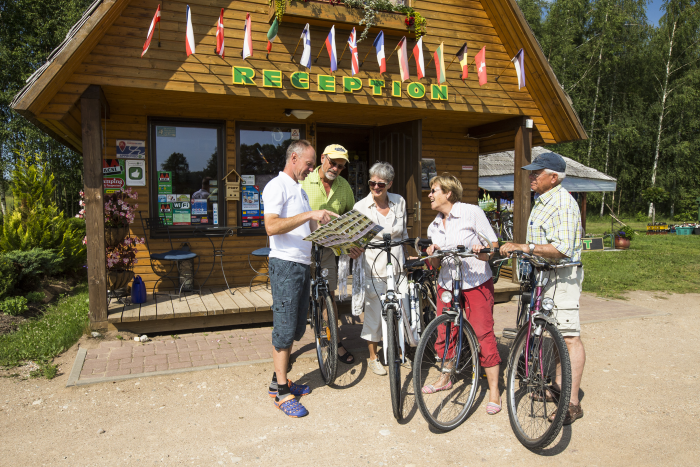Sustrans, the UK charity promoting sustainable transport, define cycle tourism as “recreational visits, either overnight or day visits away from home, which involve leisure cycling as a fundamental and significant part of the visit.”
A study commissioned by the European Parliament in 2012 estimated that there are over 2.2 billion cycle tourism trips and 20 million over-night cycle trips made every year in Europe. These have an estimated economic impact of €44 billion.
Please see our dedicated EuroVelo project page.
What is the EU doing?
It was only with the signing of the Lisbon Treaty in 2007 that tourism officially came under the remit the EU.
Up until that point, the EU had indirectly benefitted cycling tourism by funding cycling-related projects in areas that are popular for cycling tourists. As well as improving conditions for local people, it inevitably made cycle holidays in the area more attractive.
Since 2009, a dedicated Tourism Unit has been set up within the Directorate Generate Internal Market, Industry, Entrepreneurship and SMEs (DG GROWTH). The EU now has an official Tourism Policy, as well as a Political Framework for Tourism.
As a form of sustainable tourism, the EU has been increasingly supportive of cycling tourism, particularly through co-financing various projects across the continent. For example, in 2011 it has co-financed the development of two long distance cycle routes: The Pilgrims Route – EuroVelo 3 and the Iron Curtain Trail – EuroVelo 13.
This support for EuroVelo and other cycling-related schemes and projects is helping to make cycling tourism and increasingly important part of the sector.

What is ECF doing?
ECF has always proactively supported cycling tourism due to its economic, social, environmental, cultural and health benefits.
It has promoted cycling tourism by lobbying for more support and funding from the EU, building relations within tourism industry (e.g. the European Union Federation of Youth Hostel Associations), appearing at trade shows and conferences, and working with partners on cycling tourism projects. Furthermore EuroVelo is a member of the Tourism Manifesto for Growth & Jobs.
Of course, the most visible example of ECF’s support of cycling tourism is EuroVelo, the European cycle route network. This ambitious project aims to create a network of long distance cycle routes crossing the continent by 2020. It is important to note however, that EuroVelo is not only a tool for cycling tourists. It can also be used by local communities along the route. To get more information about that topic, you should have a look on www.eurovelo.org, which contains information about the network and its project partners.

